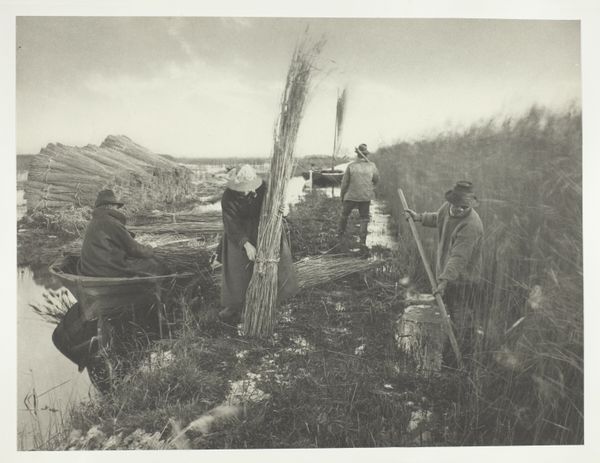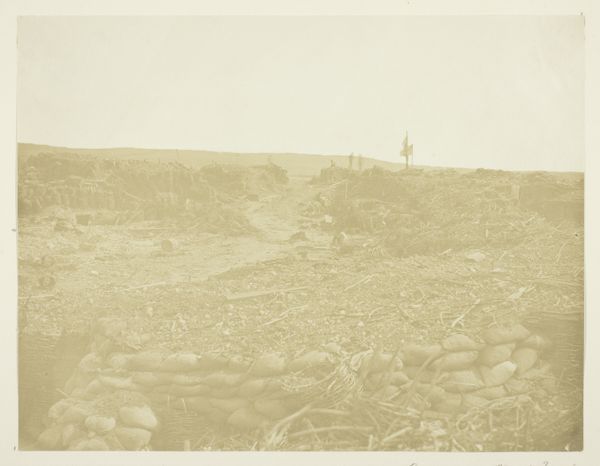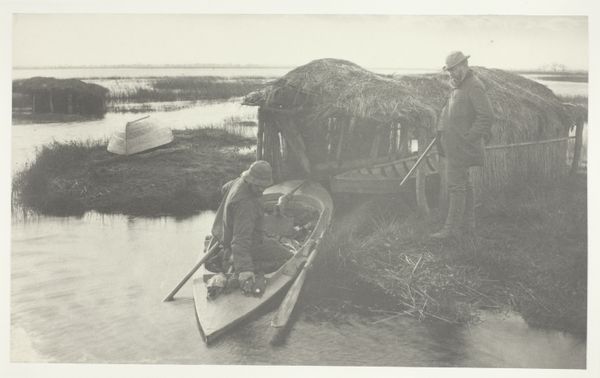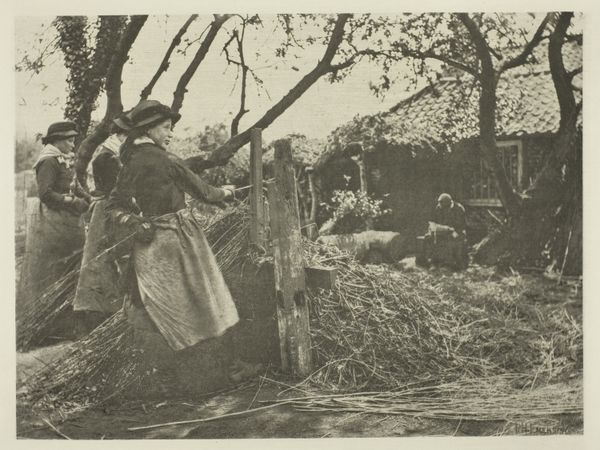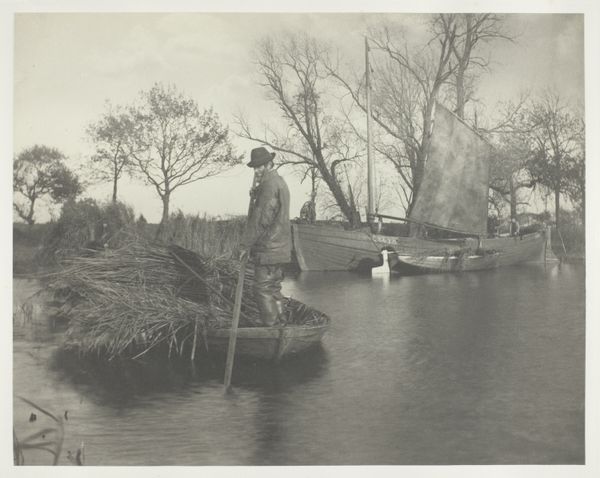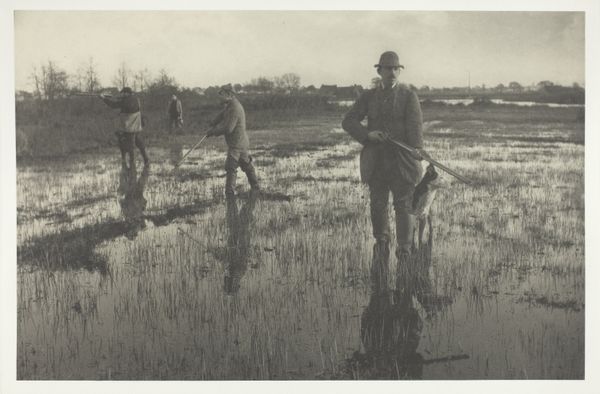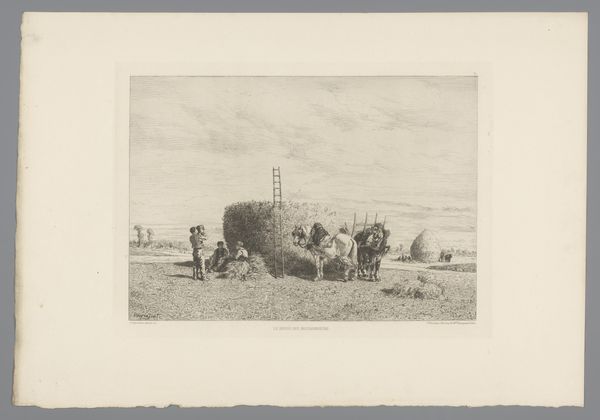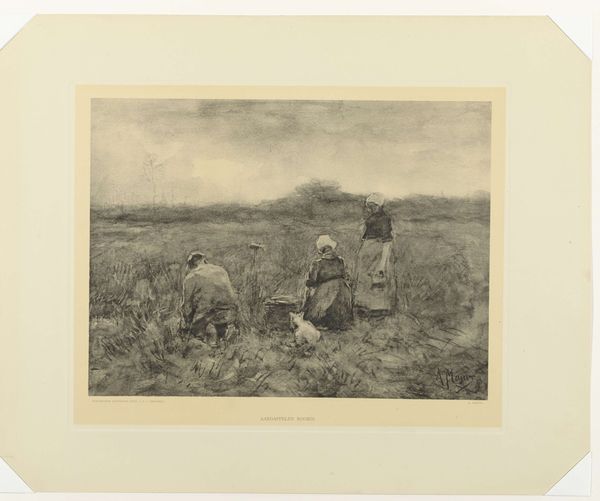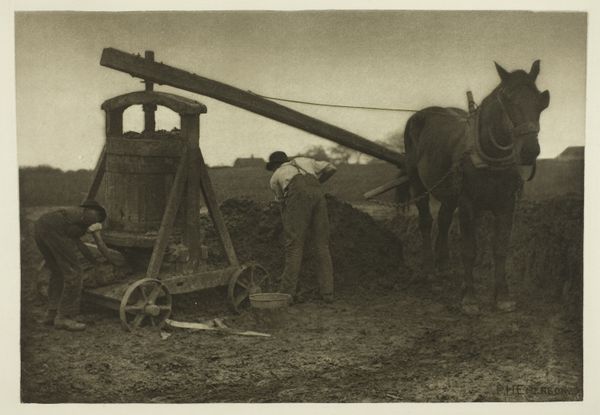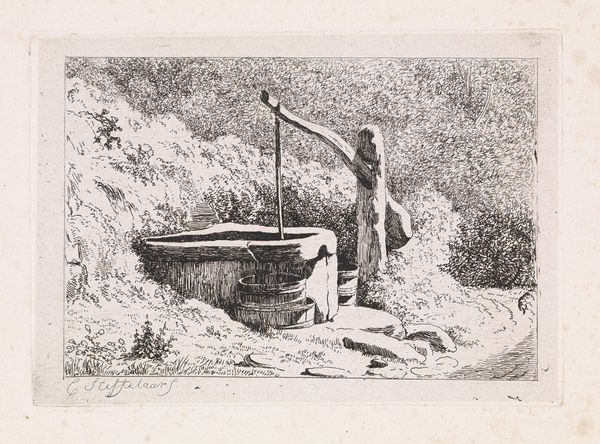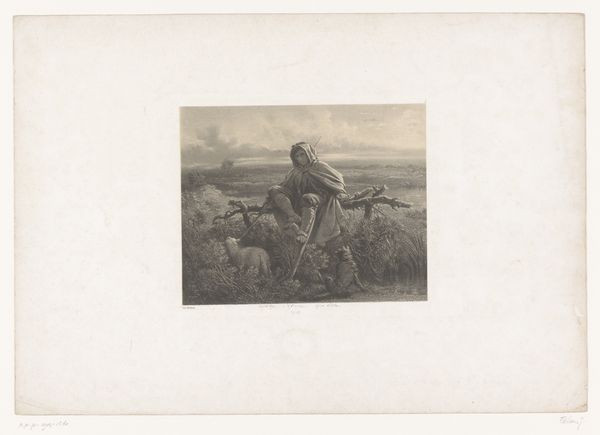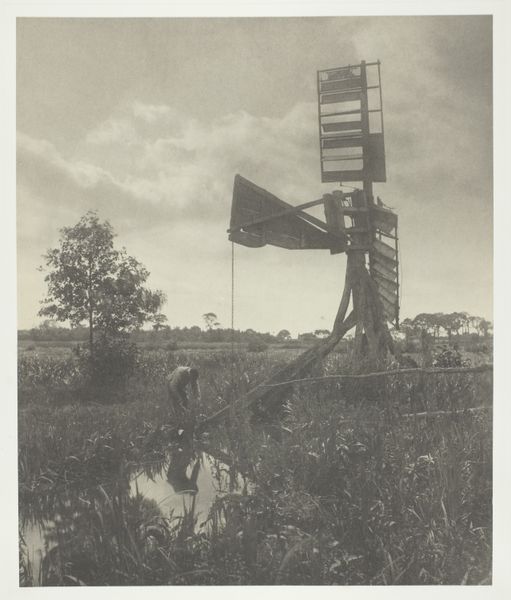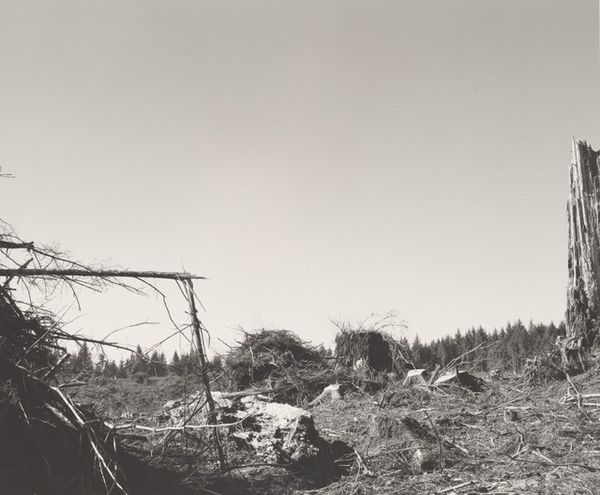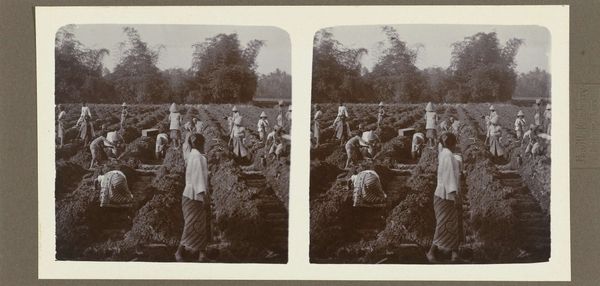
print, photography
#
natural shape and form
#
16_19th-century
#
photo restoration
#
natural tone
# print
#
natural colouring
#
nature
#
photography
#
england
#
nature friendly
#
greenery
#
nature heavy
#
nature environment
#
agriculture
Dimensions: 23.1 × 27.3 cm (image/paper); 28.6 × 41.1 cm (album page)
Copyright: Public Domain
Editor: This photograph, "Ricking the Reed," taken in 1886 by Peter Henry Emerson, has such a serene, almost melancholic feel. I'm curious about its depiction of rural life in England. What draws your eye when you look at this piece? Curator: The reeds themselves are potent symbols. In many cultures, reeds represent both fragility and resilience. Think about it, they bend in the wind but rarely break, signifying an ability to weather storms, both literally and figuratively. Notice how Emerson positions the figures dwarfed by the massive stacks. What feeling does that evoke? Editor: A sense of their connection to the land, but also the sheer labor involved? The weight of the harvest seems significant. Curator: Precisely. Consider the boat laden with reeds – a vessel not just of transport, but of sustenance and tradition. Boats often signify journeys, passages from one state to another. In this context, what journey do you think Emerson might be hinting at? Is it about the cyclical nature of harvest, the journey of life, or something else entirely? Editor: I hadn’t thought of the boat as symbolic, but now that you mention it, it adds another layer of meaning. Perhaps it suggests the enduring relationship between humans and nature, a journey they undertake together? Curator: That resonates. And how about the angle of the light? Soft and diffused. The scene isn't presented as grand, but as an everyday task elevated by its symbolic weight. Think about the tonalist movement which began in the 1880s; a desire to express feeling using muted tones. Editor: It's amazing how a seemingly simple image can contain so many layers. I'll definitely look at photographs differently from now on! Curator: Indeed, seeing art as a repository of cultural memory changes everything, doesn't it? It’s about recognizing the symbols that connect us to the past and to each other.
Comments
No comments
Be the first to comment and join the conversation on the ultimate creative platform.
